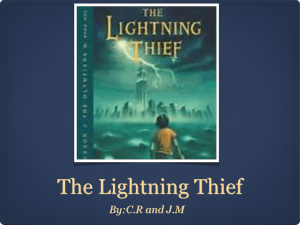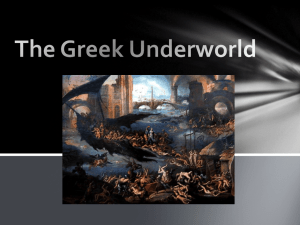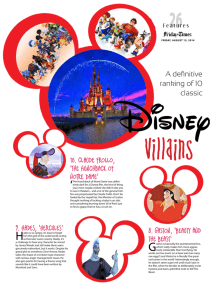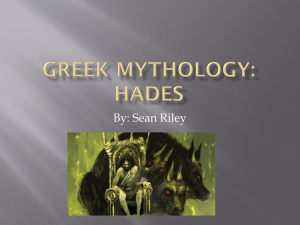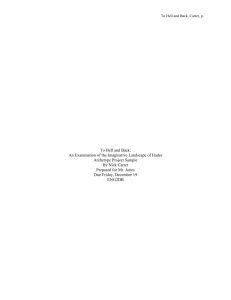Hades: from Ancient Myth to Modern Film
advertisement
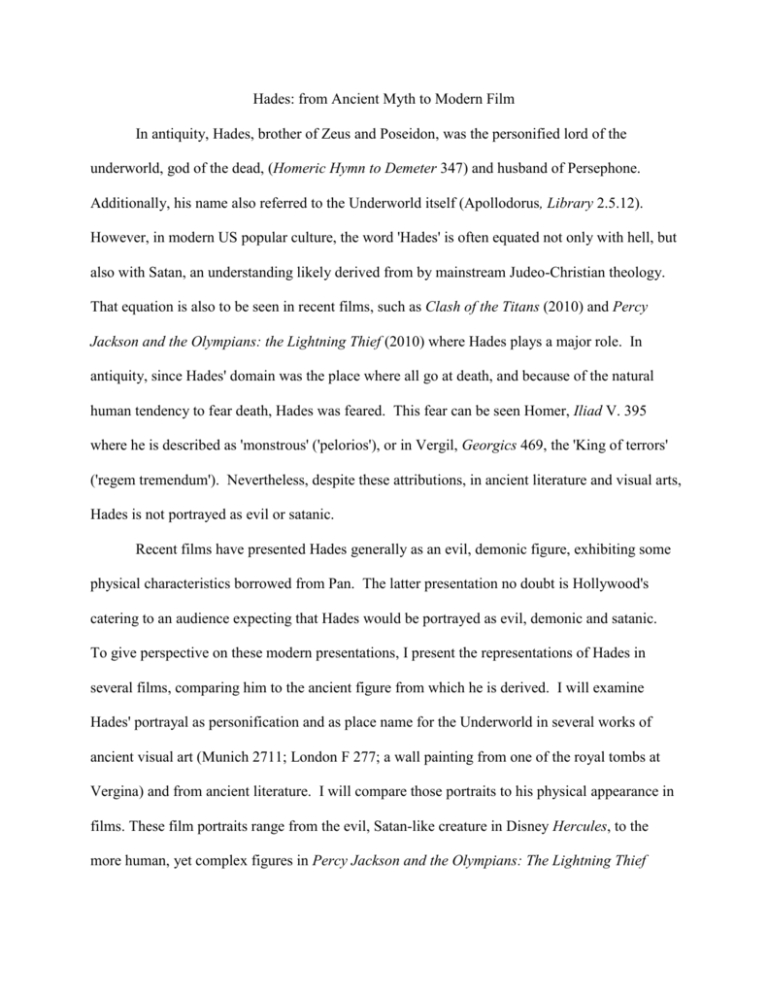
Hades: from Ancient Myth to Modern Film
In antiquity, Hades, brother of Zeus and Poseidon, was the personified lord of the
underworld, god of the dead, (Homeric Hymn to Demeter 347) and husband of Persephone.
Additionally, his name also referred to the Underworld itself (Apollodorus, Library 2.5.12).
However, in modern US popular culture, the word 'Hades' is often equated not only with hell, but
also with Satan, an understanding likely derived from by mainstream Judeo-Christian theology.
That equation is also to be seen in recent films, such as Clash of the Titans (2010) and Percy
Jackson and the Olympians: the Lightning Thief (2010) where Hades plays a major role. In
antiquity, since Hades' domain was the place where all go at death, and because of the natural
human tendency to fear death, Hades was feared. This fear can be seen Homer, Iliad V. 395
where he is described as 'monstrous' ('pelorios'), or in Vergil, Georgics 469, the 'King of terrors'
('regem tremendum'). Nevertheless, despite these attributions, in ancient literature and visual arts,
Hades is not portrayed as evil or satanic.
Recent films have presented Hades generally as an evil, demonic figure, exhibiting some
physical characteristics borrowed from Pan. The latter presentation no doubt is Hollywood's
catering to an audience expecting that Hades would be portrayed as evil, demonic and satanic.
To give perspective on these modern presentations, I present the representations of Hades in
several films, comparing him to the ancient figure from which he is derived. I will examine
Hades' portrayal as personification and as place name for the Underworld in several works of
ancient visual art (Munich 2711; London F 277; a wall painting from one of the royal tombs at
Vergina) and from ancient literature. I will compare those portraits to his physical appearance in
films. These film portraits range from the evil, Satan-like creature in Disney Hercules, to the
more human, yet complex figures in Percy Jackson and the Olympians: The Lightning Thief
(2010), and Clash of the Titans (2010). I will also consider the psychological/political views
represented, as Hades is represented as an enemy of Zeus. One additional perspective will be
Hades as an abusive husband as seen by Persephone in Percy Jackson and the Olympians: The
Lightning Thief.
